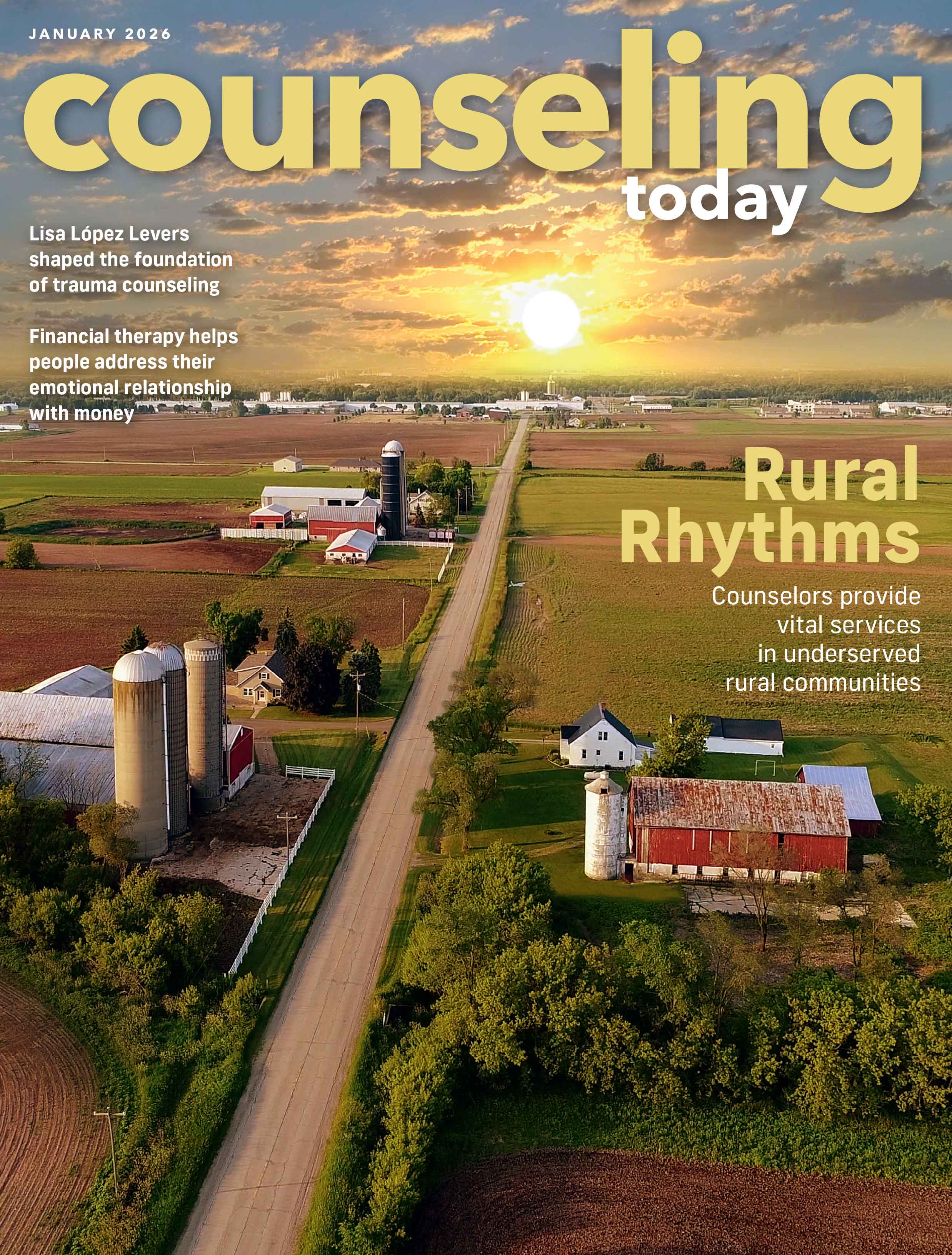How to Build a Professional Network
May 2025

Every issue we ask a counseling student or new professional to post a career-related question to another counseling professional who has experience in that topic. This month, Maryam Shaikh, a first-year master’s student at Monmouth University, asks Odalis Romero, LMHC, an educator and doctoral candidate in counselor education and supervision at Liberty University, for networking advice.
Question: How can I strategically build my professional network and gain relevant industry experience while still in school to set myself up for success after graduation?
State branches. One of the first things is to get involved with your state branch of ACA. State branches are smaller and are a great way to meet people in your state, even possible mentors. When I say start in the state branch, this does not mean just being a member but getting involved. Looking at the state branch’s website is a way to see what committees they have. After looking at the website, reach out and let them know if you are interested in a specific committee or simply let them know you want to get more involved and ask how you can do so.
State divisions. Not only are there state branches, but there are also state divisions. You can also get involved there. Many times, state divisions need graduate student representation for the board — put yourself out there. State branches also have committees that need support. Reach out to the chairs and even the board to find ways to help the association grow and build our profession.
Conferences. In addition to getting involved in the branch and the division, you can attend conferences. Again, start small. I have met some people in my network at the Florida Counseling Association’s conventions. You will find at least one or two people you can reach out to for professional, and even personal, support.
ACA divisions. At the national level, ACA has several divisions based on specialties and specific missions. I recommend you get involved in at least one division that feels right to you. Reach out to ACA and to the divisions you’re a part of and see how you can help.
Volunteering. Be aware that the work within our professional organizations tends to be based on volunteers — thus, become one. Respond to emails from ACA or the divisions related to getting involved, such as when they need volunteers for conferences.
Community activities. When thinking of networking within your community, see if there are professional events where you can network with people. You may also want to network with schools, churches and community centers to provide mental health awareness, if possible. See if your school has a Chi Sigma Iota chapter to network and connect with others in the field, or join a counseling organization within your school. Reach out to professors or others who might be working on research or projects that interest you; publishing or presenting with them is something else you can do, even as a student.
Lastly, when you do connect with someone, build a relationship. Sometimes the people you feel connected to might be the people you publish or present with, or who even cheer you on to a new position not only in a professional organization but also in your career. Remember, it’s never too early to get involved in committees, presentations and publications and be a voice for graduates, so reach out and network.


